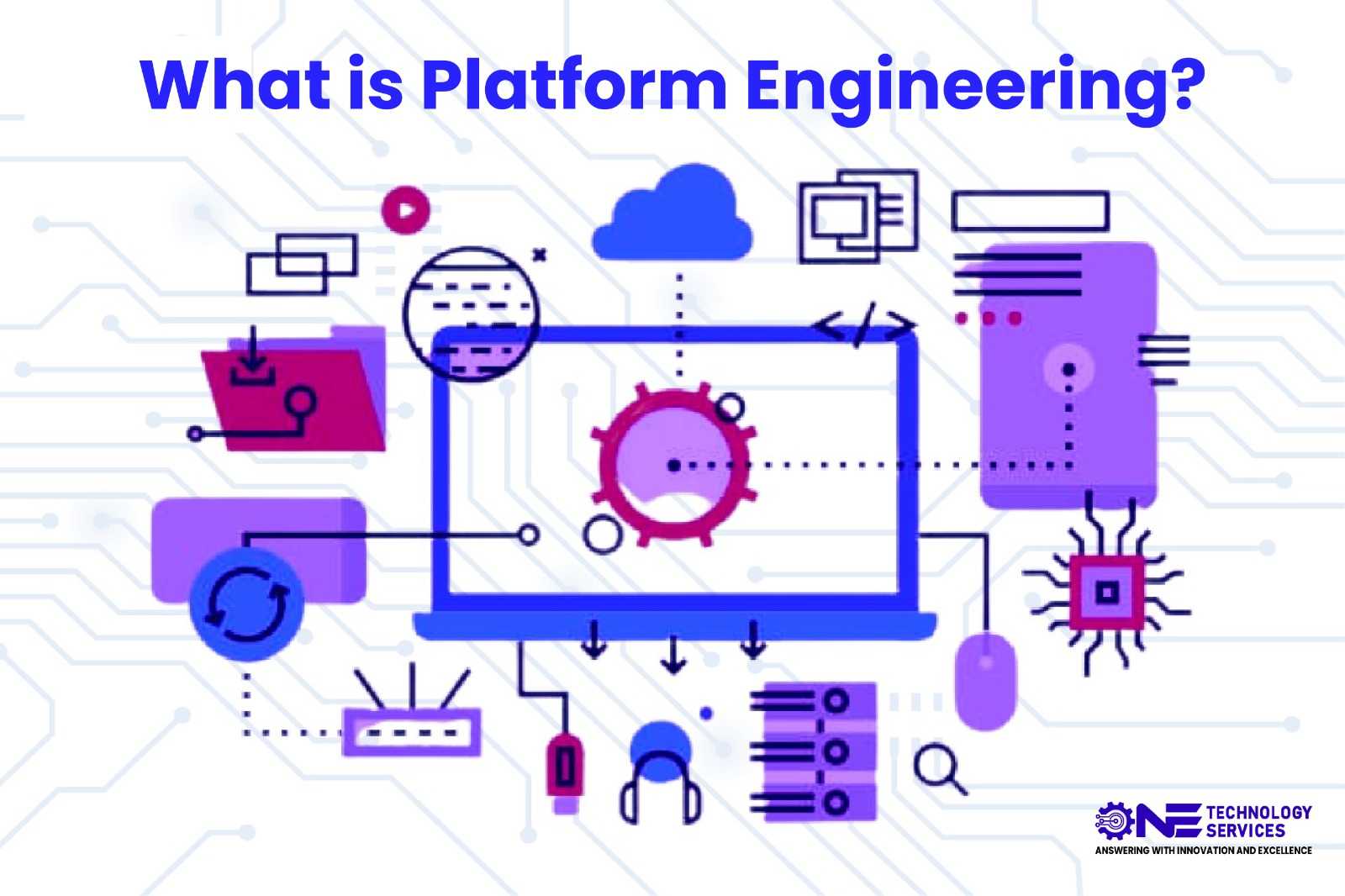Platform engineering is one of the emerging technologies that has accelerated the working capacity of several applications thus facilitating business organizations to enhance their value. Many organizations have already begun hiring platform engineers that will help synergize their organization’s working capacity. This technology helps business automate their entire workflow starting from the code and till the final delivery of their software’s or applications.
We have witnessed a pretty clear trend in software engineering over the past 20 years. One is the growing reliance of businesses on automation. There is no other method to produce goods quickly while maintaining the high level of quality that consumers want. Additionally, conventional boundaries between roles are thinning.
Smaller, independent development teams have replaced major departments (development, QA, operations, and release) in cloud-native enterprises’ organizational structures. Two additional roles—platform engineering and site reliability engineering—support these application development teams. SRE and platform engineering are the traditional operations teams’ spiritual successors and apply the discipline of software engineering to various facets of operations.
In a recent survey, experts have found out that the organizations are facing an increased cognitive load potentially turning down the working capability of platform or development teams. It means the organizations should start considering the solution for this cognitive burden. This is where platform engineering creates a difference.
Let’s get started with how platform engineering will create a difference in software world? What exactly is this technology and why is platform engineering important?
What is Platform Engineering?
The process of creating, constructing, and maintaining workflows and tools for software engineering companies in order to promote consistency and accelerate routine tasks is known as platform engineering. Platform engineers make it easy for application developers to distribute software to users. Software engineers and other IT professionals within the organization can then make use of such platforms to deploy and run software in production in a secure, effective, and dependable manner.
Internal developer portals (IDPs) are frequently where initial platform-building initiatives start because they are the most developed. IDPs offer a hand-picked selection of tools, talents, and procedures. They are chosen by subject matter experts and packaged for development teams to consume quickly. The platform team must choose the strategy that works best for their particular set of circumstances after consulting closely with the developers they assist. The objective is to provide developers with a frictionless, self-service environment that provides the necessary tools for them to generate high-quality software with the least amount of administrative burden.
Platform Engineering aims to increases the capabilities of a developer and mitigating the cognitive load within any organization. It enables the developer to design self-capable product. It brings everything needed by the developer under one umbrella thus helping him out in designing the customer-oriented software and reducing risks.
In other words, self-service platform hides all these complexities and gives developers everything they need for the complete life cycle of the application, whether it is for infrastructure provisioning, code pipelines, monitoring, or container management. Platform Engineering is a collection of tools, methods, and other relevant tooling.
Platform Engineer Responsibilities
In order to enhance the developer experience and productivity, platform engineers provide reusable tools and self-service capabilities with automated infrastructure operations. Additionally, he makes use of services and reusable adjustable application components. To aid software developers in managing the complexity of creating their apps, platform engineers have emerged.
Platform engineers may ease the burden of software development by utilizing Infrastructure as Code and other strategies and tools, enabling engineers to get their code into production more quickly than ever before.
Coding by platform engineers fills the gaps between software and hardware. They are an essential component of the hardware and software industries and carry out diagnostic tests to confirm the accuracy of the hardware design. They manage the packaging of applications and oversee the administration of all software service configurations into diverse settings, all the while ensuring that each programme is of the highest quality. All applications are managed and maintained, ad hoc reports are generated for various assets and systems, and all operating systems are evaluated and documented in accordance with the necessary standards and associate needs.
The tools, services, and components that the network engineers rely on to automate our network and keep it running are deployed, managed, fixed, and reinvented with the assistance of platform engineers. In short, platform engineering facilitates the software developer to choose the best platform for designing any application.
Platform Engineer Salary
The platform engineer is considered one highly paid engineers as compared to software or electrical engineer.
As of 2021, the average Platform Engineer pay in the US was $139,320, although the normal salary range is between $128,716 and $150,358. Salary ranges can vary significantly depending on a variety of crucial aspects, including schooling, credentials, supplementary talents, and the length of time you’ve been working in a given field. Salary.com assists you in determining your precise pay target by providing more online, real-time compensation data than any other website.
Platform Engineering Vs DevOps
Since both of the practices are used by the software developers for common purpose, they are often considered the same, instead both the terms are way too different.
For starters, the idea of DevOps predates that of platform engineering and has developed alongside advancements in technology. DevOps was initially somewhat ad hoc. For instance, cooperation between a team and a DevOps team was required if a team inside an organization wanted to host a new website. Compared to the idea of platform engineering System engineers create platforms for teams to build on.
Some software engineering teams reached unprecedented heights of productivity and efficiency because to DevOps. The implementation of DevOps, however, did not live up to the high expectations of many enterprises. Platform Engineers’ major objective is to maximize the speed and effectiveness of software delivery operations, while DevOps’ main objective is to improve the development pipeline. Platform engineering is seen as a step-up from DevOps because it does all the same tasks that a DevOps platform does, but with some extra features that DevOps doesn’t offer. The inefficient allocation of most expensive and crucial resources of the organization to less important operations is one major drawback with DevOps platforms.
Shadow operations are a symptom of a bigger issue with DevOps done incorrectly: an excessive amount of cognitive load on developers. The amount of information a person needs process to finish a task is known as cognitive load. Developers struggle to recall and process all the knowledge they need to finish their work when their cognitive load is too high. This flawed approach places an unnecessary burden on an incompetent developer.
This is where platform engineering takes the lead since platform engineering is a self-capable system that shifts the cognitive burden from the developer to itself thus making things less messy. It finds the right level of abstraction thus preventing any bottlenecks for the developer.
Challenges of Platform Engineering
The propensity to create more compartments when implementing platform engineering is a problem. A suitable illustration would be a ticketing system where users may submit feature or problem requests, which are then handled by platform engineering. By providing accurate and pertinent content, holding training sessions, and teaming up with users to resolve their issues, you may combat this by concentrating on enabling users to self-serve their own needs with your portal.
Setting the proper priorities is another problem. A single feature request pipeline for those things customers cannot self-service with a committee deciding on priority is necessary to properly serve the needs of your organization because there are numerous users from numerous distinct parts.
Wrap Up
Remember that there is still some room for interpretation because the term “platform engineering” is still quite new. Platform engineering is still a term that the industry is still trying to define. One thing is certain: automation’s importance and prominence in the software development process will only increase. Without utilizing all of the resources at your disposal to create a software delivery pipeline that is as effective and swift as it can be, it is just impossible to stay competitive in this industry.

